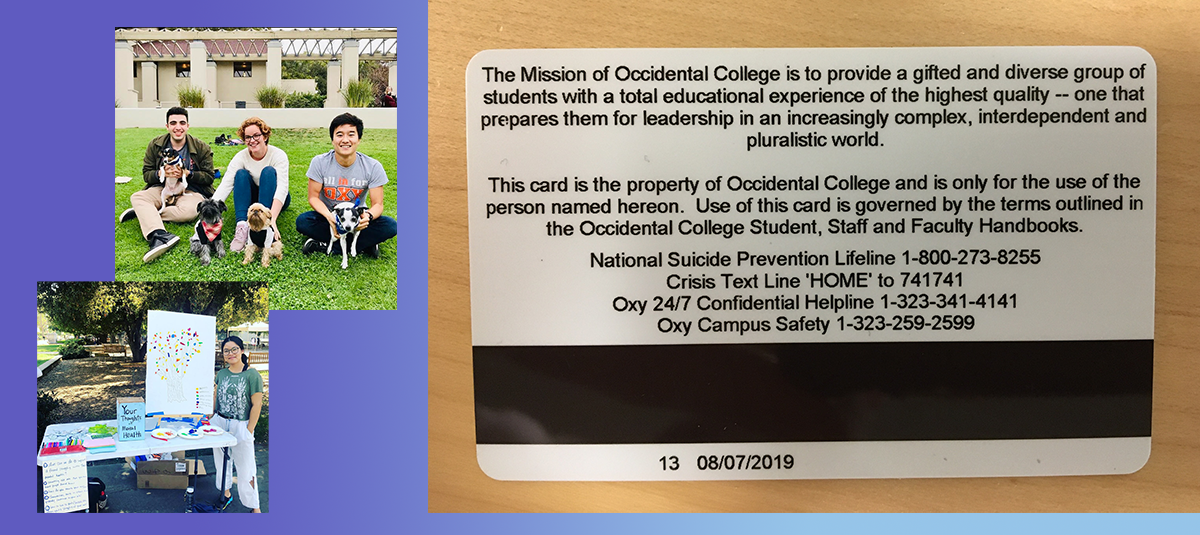Since it was established, Active Minds at Occidental College has been an active organization in terms of tabling and programming, and we strive to give mental health a voice on an institutional level. We aim to work with administrators by sharing information about college students’ mental health and relevant policy to strategize ways to ensure students’ success.
Here’s the story of adding crisis numbers to the back of our ID cards:
One day in July 2019, one of our Eboard members, Liz, shared a Facebook post from Active Minds National that encourages students to work with their school to put crisis numbers on the back of their student IDs. Yingfei, another Eboard member, recalled reading an Active Minds blog post that mentions California lawmakers passing a bill that requires higher education institutions to have crisis numbers on student ID cards, to be in effect as of that summer.
In fact, having those numbers on our ID cards had always been on our radar. It was once brought up in a chapter general meeting, and an Eboard member flipped her ID over, but didn’t see any numbers.
So with that as a backdrop, one of our co-presidents suggested to the Eboard that instead of waiting and hoping that the Card Office would be in compliance with the law come the fall, we should write an email to the Card Office, the Deans, and the President of the college to make sure the change would be implemented. Based on the blog post, we researched the law and included relevant clauses in the email.
Five days later, we received a response from the Card Office letting us know they would implement the change.
Roughly a month after that, our advisor, who is the director of the wellness center, forwarded to us the entire email correspondence between the deans and the card office on our suggestion. It turns out that, as we would see in the email correspondence, the card office was not aware of the new law and was, at that time, already in the process of producing ID cards without crisis numbers for the incoming class. Our reminder alerted the card office, the deans, and various other departments to revamp the design. In three weeks, the new ID cards came out with the National Suicide Prevention Lifeline, the Crisis Text Line, the campus safety’s number, and the number for the campus’ 24/7 confidential helpline printed on the back.
We are glad to have taken the initiative to communicate with school administrators regarding the importance and necessity to pay attention to college students’ mental health. So, to all my fellow mental health advocates: please don’t underestimate the impact of your ideas and actions, because you never know when a small gesture will make a huge difference in someone’s life.
I might not need to dial the numbers this year, but seeing them printed on my ID reminds me that my peers and I are prepared and ready to help.
Would you like to learn more about how you can implement change on your campus? Head here to download the ID Cards Campaign guide. The guide will support your efforts to have mental health crisis numbers printed on the backs of ID cards. That way all students will have access to immediate help if they need it. The guide includes information on how to decide what crisis numbers to display and much more. This guide is one of several available as part of the Transform Your Campus series, and was funded in part by The Peg’s Foundation.




